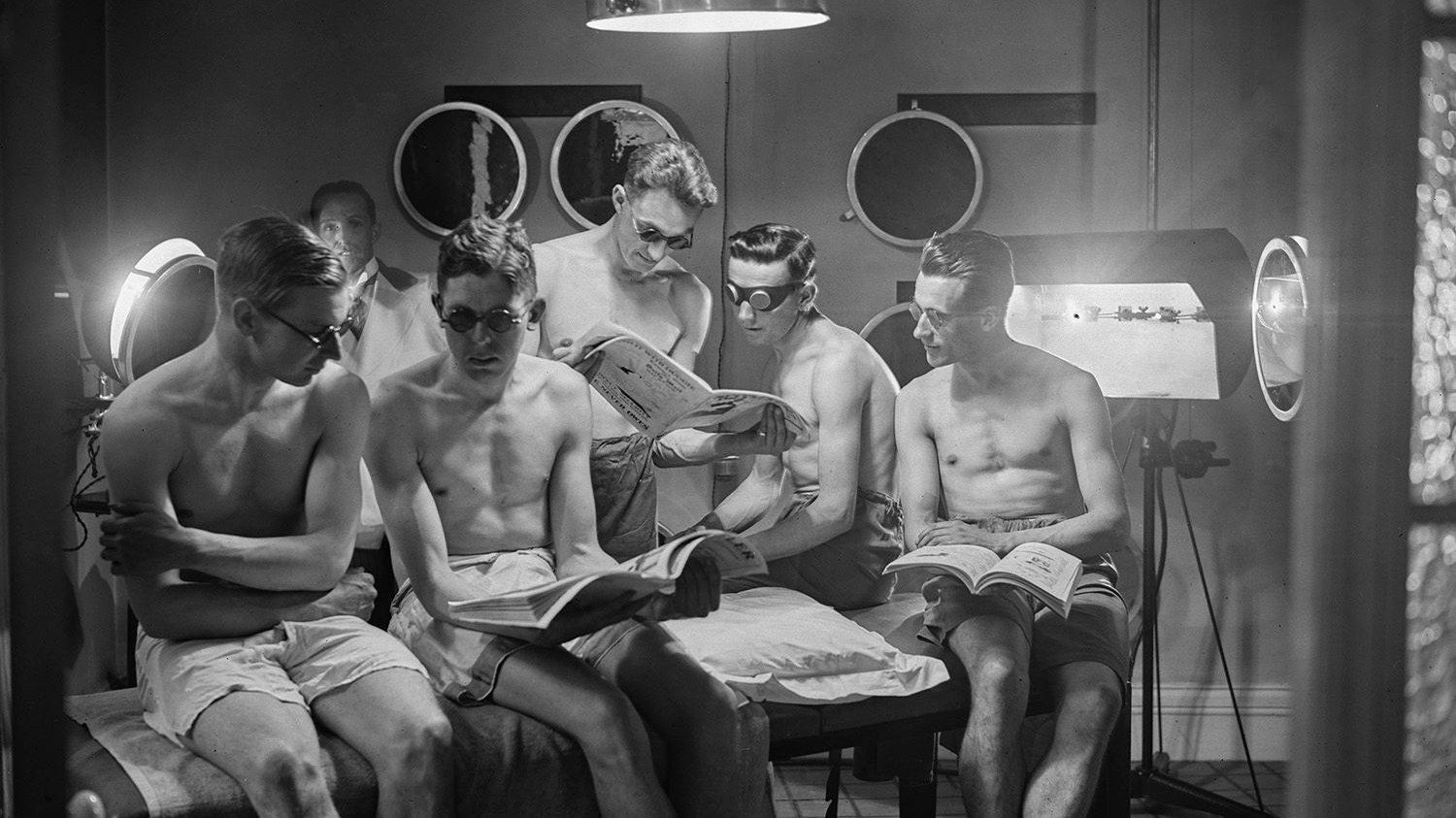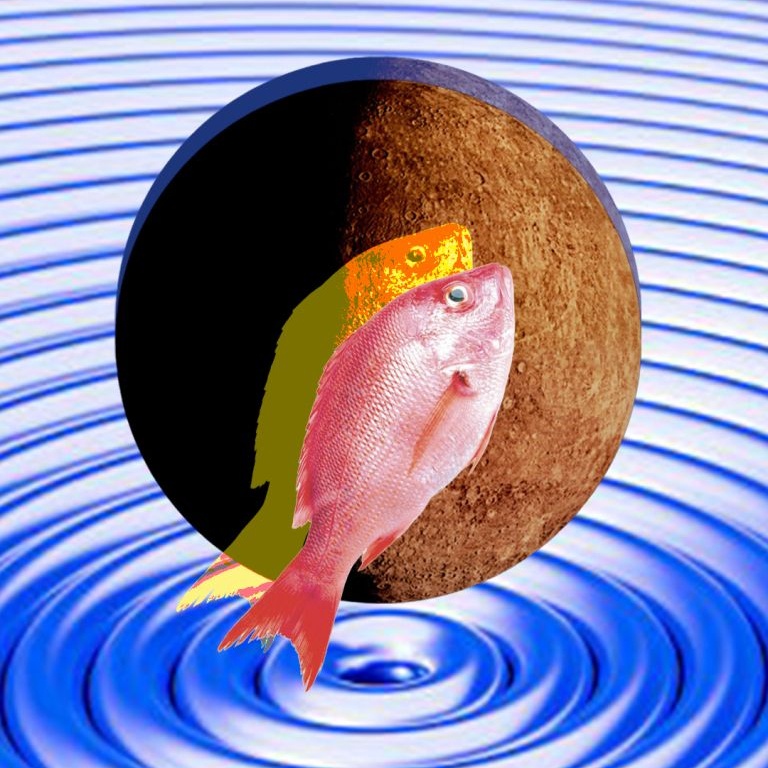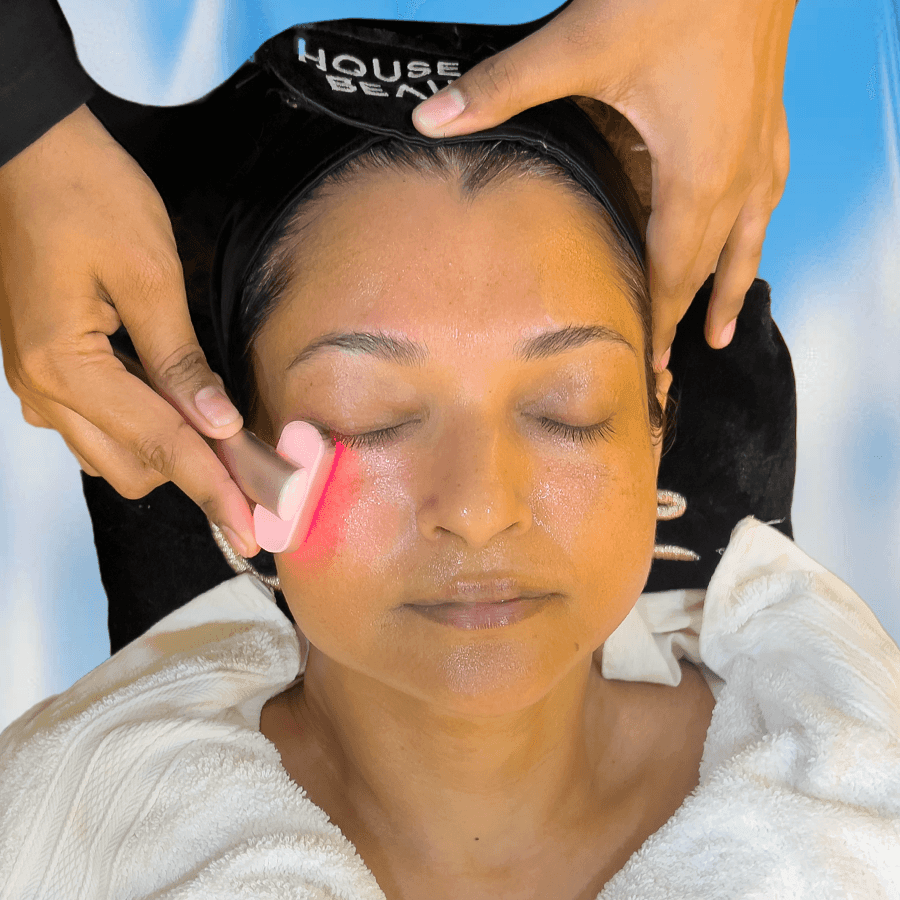For something as critical to athletic performance as recovery, it’s surprising that a dedicated recovery room for national contingents at the Olympic Games Village is not a guarantee, but a privilege. While a polyclinic inside the Village provides medicines, treatments and facilities such as ice baths to all athletes, only countries with over 100 participants can set up their own recovery rooms. Even if they have over 100 athletes, the national Olympic association needs to have a budget and personnel to set it up and run it.
For the first time in history, India’s 117-member strong contingent is one of the privileged few at Paris 2024 to have their own multimodal recovery room, budgeted by the Indian Olympic Association, where players can rest and recover after training or games.
The air-conditioned 600 sqft space, serviced by a full-fledged sports medicine and sports science team, is divided into three sections, says Dr Dinshaw Pardiwala, Chief Medical Officer for Paris 2024. We caught him past midnight on his bus ride to the Olympic Village from Roland-Garros, where he was monitoring Rohan Bopanna and N Sriram Balaji’s post-match cooldown and recovery on Sunday.
“We have two ice baths in the first room. They can hold six athletes at a time. Next to it are three treatment beds and some pink beanbags. We also have recovery equipment and machines such as Game Ready cold and contrast compression therapy units, Normatec air compression recovery system, and ultrasound, that are needed to help in the athletes’ recovery,” says Dr Pardiwala, who also heads the Centre for Sports Medicine and is the director of arthroscopy, sports orthopaedics and shoulder service at the Kokilaben Dhirubhai Ambani Hospital in Mumbai. Strictly for athletes, the space remains out of reach for any visitors, but Pardiwala’s elaborate insights make you believe you are almost there: “There is a massage section with separate massage therapists for men and women. The final one is the sleep optimisation room with three sleep pods,” he adds. For context, Great Britain, which sends a much larger squad, has eight sleep pods.
While the ice baths have been rented and will be returned after the Games are done, the three Podtime Original sleep pods have been purchased. After the Games, these pods will be shipped back to India and two will be put in the Sports Authority of India (SAI) campus in Bengaluru and one in Patiala, says Brig Dr Bibhu Kalyan Nayak, head of SAI’s National Centre for Sports Sciences and Research, who is part of the IOA’s 13-member core medical team in Paris.
Among all the cutting-edge tech that the facility offers, it’s the sleep pods that have been in high demand—even more than the medical team anticipated. Many are using them for naps between training or after an early game, and some athletes are even choosing to sleep in these pods before their games.
Heat waves have been becoming more frequent around this time of the year in Paris, and the team was concerned that the athletes might struggle with getting good rest at the Olympic Village, which has no air conditioning. India had initially planned to rent aircon units but settled for fans that the organisers provided in the rooms. Wednesday was the first day when serious heat seared the city, with temperatures reaching over 35°C.
While skill, mobility, flexibility and strength training are required to play any sport, at the highest level where the difference between victory and defeat is marginal at best, recovery and sleep gain an added significance because poor quality or insufficient sleep can hamper both physical and mental performance. Dr Pardiwala says they had anticipated the issue and prepared for it. Many of the athletes were made to attend sessions on how to improve their sleep even before they left for Paris.
More than 50 percent of Indian athletes don’t get enough sleep, says Samuel Pullinger, head of sports science at the Inspire Institute of Sports in Bellary, who has worked with Olympic gold medalist Neeraj Chopra. “Planes, jet lag, competition stress, outside noise, and gadgets are some reasons why their sleep is hampered,” he explains. “Several Indian athletes, especially those from rural areas and with lower international exposure, believe waking up early and training hard is the only way to succeed. We teach them that if they have slept late, they should also wake up late after fulfilling their entire sleep needs and then show up for training.”
More than 50 percent of Indian athletes don’t get enough sleep... Planes, jet lag, competition stress, outside noise, and gadgets are some reasons why their sleep is hampered.
Pullinger also encourages athletes to carry their favourite blanket or pillow, a bedcover they feel most comfortable in, or a picture of their family when they travel, to help them sleep soundly. If they still have trouble getting rest, the Indian medical team in Paris has a sleep therapist on call too.
If the activity within the rooms is anything to go by, they’re a hit with the athletes. The recovery rooms function 24x7, but the rush picks up around 6:30am and stays that way till well after midnight, when the players return from late games, every single day. Two doctors, Dr Tvisha Parikh and Dr Nayak, are stationed at the recovery room. The team also has sports physiotherapists, who are the first point of contact for all athletes in case of an injury. There are two mental conditioning coaches and two sports nutritionists as well. The physios also travel to the various venues where Indian athletes are playing. On Monday morning, Dr Pardiwala was off to the hockey stadium on the outskirts of Paris for India’s drawn group stage game against Argentina.
Needless to say, things have been busy for everyone in the recovery room but everything has been running smoothly. No athlete has been left unattended or faced a delay in getting treatment. It has been that way because of an app that was built expressly for this very purpose.
The app, made exclusively for Indian athletes, coaches, medical team and officials, covers many different aspects of playing in the Olympics. One page has all the schedules, rules and dining hall menus for the day so that the nutritionists can help the athletes choose what they could eat that day. All the different services of the recovery room—from ice baths to sleep pods—are divided into time slots on the app. A scheduling system lets athletes and physiotherapists choose what service they need at what time. “Since the IOA had planned for a contingent of 110 for Paris, no one is having to wait at all and everything is at their beck and call. Everything is working well,” Dr Pardiwala signs off.




